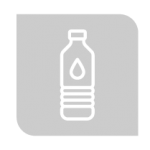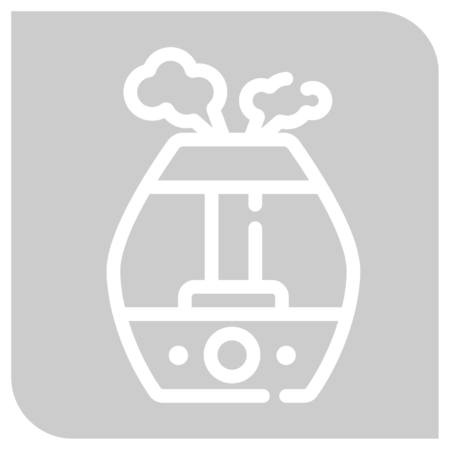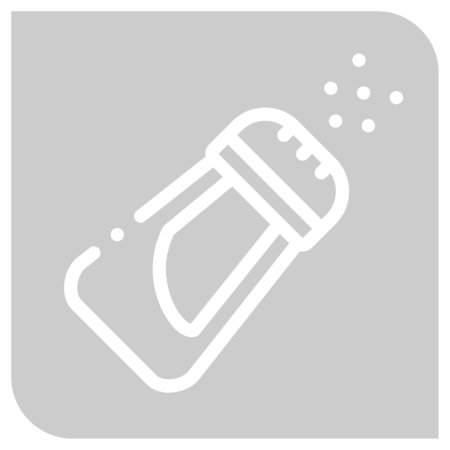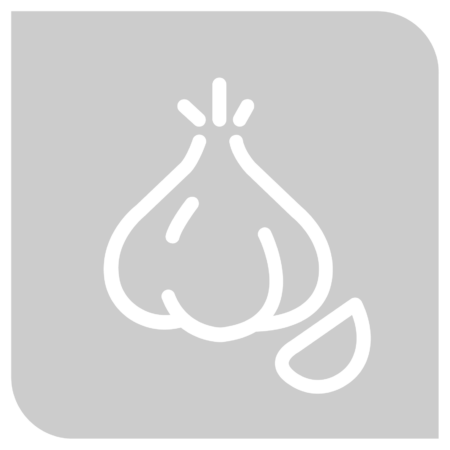
Mucus typically gets a bad reputation, but it actually helps protect your body from the spread of bacteria and allergens by trapping germs.¹
Though congestion can make you feel uncomfortable and cause breathing difficulty, your body’s natural response is to mobilize mucus buildup in the lungs and cough—causing the phlegm to thin and loosen.
You’ve probably heard this process referred to as a wet or productive cough, as its sole purpose is to help break up excess phlegm.
In this article, we’ll explore the following topics to help you understand the causes of excessive mucus and how to clear mucus from the lungs.
Topics we’ll cover include
When Mucus in the Lungs Won’t Go Away
Natural Remedies for Clearing Mucus
Mucus Buildup and Airway Clearance
When Mucus in the Lungs Won’t Go Away
If you become sick, whether it’s due to allergies, a cold, or a chronic lung condition, your mucus will change color and become thicker, making it more difficult for your body to clear it independently.
When this happens, your lungs are prone to infection, and that uncomfortable feeling of congestion gets even worse.
Signs of Mucus in the Lungs
Everyone is different, and the causes for why we experience excess mucus production will vary. However, if you’ve ever experienced phlegm and mucus buildup, you probably know how uncomfortable it can be. It can feel like something is stuck in your throat or chest.
A few other signs of mucus in the lungs include:
- Wheezing
- Difficulty sleeping
- Sore throat
- Chest congestion
- Cough that produces phlegm
- Respiratory infection
Mucus and Chest Congestion
Mucus can make your chest feel congested because when excess mucus builds up in the airways (i.e., bronchi), it can block airflow, making breathing difficult.²
When mucus builds up, it can also trap bacteria and viruses, which could lead to respiratory infections. This is an unpleasant experience for anyone, but it can exacerbate symptoms if you’re living with a chronic lung condition like bronchiectasis, COPD (chronic obstructive pulmonary disease), or asthma.
5 Natural Remedies for Clearing Mucus in Lungs
Looking for home remedies to help clear mucus in the lungs? Below, we’ve compiled a few tips.
 Stay Hydrated
Stay Hydrated
If you’re experiencing the onset of a cold or allergies, drink plenty of fluids, particularly warmer beverages (i.e., broth, tea, warm water), as they can help thin mucus and provide temporary relief from chest pain caused by congestion.³
Safely Inhale Steam
Inhaling steam is a simple yet effective way to loosen mucus and soothe irritated airways.4 Fill a bowl with hot water, place a towel over your head, and inhale the steam for 10-15 minutes. You can add a few drops of essential oils like eucalyptus or peppermint for added relief.
Tip: Be cautious with using steam to avoid burns. If you’re feeling fatigued due to mucus buildup, ask a loved one to assist you with this remedy.
You can also use the steam from a bath or hot shower to help clear mucus from the lungs.
 Add Moisture to Your Environment
Add Moisture to Your Environment
Dry air, especially during the winter, can cause or worsen mucus buildup. Therefore, consider placing a cool mist humidifier in your home to help alleviate the irritation caused by dry air.5
Gargle Saltwater
Gargling with warm salt water can help reduce inflammation and clear mucus from the throat. Mix half a teaspoon of salt in a glass of warm water, gargle for 30 seconds, and then spit it out.
 Repeat this several times a day for best results.6
Repeat this several times a day for best results.6
Eat Mucus-Reducing foods
Certain foods, such as garlic and ginger,7 have natural anti-inflammatory properties that can help reduce mucus in the lungs.
Additionally, foods high in Vitamin C, like citrus fruits, may help boost the immune system and reduce inflammation in the respiratory system.8
 For more ideas on mucus-reducing foods, read this guide.
For more ideas on mucus-reducing foods, read this guide.
Practice Huff Coughing
Huff coughing is recommended for mucus buildup because it helps to loosen and clear mucus from the lungs. It involves taking a deep breath, holding it for a few seconds, and then forcefully exhaling the air in a “huff” sound.
How to Practice Huff Cough
 Sit upright and take a deep breath in through your nose.
Sit upright and take a deep breath in through your nose.
Next, make a “huff” sound as you forcefully exhale through your mouth, like you’re trying to fog up a mirror.
Repeat this 2-3 times, then take a few normal breaths before repeating the cycle.
You may also want to try Pursed Lip Breathing and Diaphragmatic Breathing.
Remember, natural remedies may provide relief for mild cases of mucus buildup. If your symptoms persist or worsen, however, it’s important to consult a healthcare professional for proper evaluation and guidance.
How to Get Mucus Out of Lungs with Airway Clearance
 If you’re living with bronchiectasis, the challenge of clearing mucus from the lungs can significantly increase, causing a cycle of repeated respiratory infections.
If you’re living with bronchiectasis, the challenge of clearing mucus from the lungs can significantly increase, causing a cycle of repeated respiratory infections.
Though every person is different, your treatment may consist of an algorithm of antibiotics and airway clearance therapy.
The SmartVest Airway Clearance System
The SmartVest Airway Clearance System is a high-frequency chest wall oscillation (HFCWO) therapy device that delivers repeating air pulses from a generator to a vest garment that gently squeezes and releases the upper body.
The oscillation helps loosen mucus and propel it upwards so you can cough it up easier, helping to prevent the spread of infection that could further damage your lungs.
When used regularly, SmartVest can help you or your loved one experience symptom relief and prevent mucus buildup.
Learn more about the benefits of using SmartVest and request an information packet today!
When to Contact Your Doctor
If you’re experiencing an excessive amount of mucus buildup in your throat, chest, or lungs, it may be time to contact your doctor.
Your doctor can help determine the underlying cause and provide appropriate treatment options to alleviate your symptoms and prevent future complications.
It’s important to seek medical attention if you experience any difficulty breathing, chest pain, or other concerning symptoms in addition to the mucus buildup.
Mucus FAQs
What is the fastest way to break up mucus in your chest?
If you’re looking for ways to break up mucus in your chest, you may try one of the following:
- Drinking plenty of fluids, such as water, tea, or broth, can help thin out the mucus and make coughing easier.
- You can also use a humidifier or steamy shower to help loosen the mucus.
- Practice airway clearance techniques such as breathing exercises or chest physiotherapy.
If mucus buildup keeps you awake at night, try elevating your head to prevent it from collecting in the back of your throat.9
Will mucus in lungs eventually go away?
In some cases, such as with a cold or flu, the mucus may go away as your body fights off the infection. However, if phlegm and mucus buildup is accompanied by a chronic condition, such as bronchiectasis or COPD, it may not go away entirely but can be managed with proper treatment and medication.
Again, consult with your healthcare provider to determine the underlying cause of your mucus buildup and the best course of treatment.
What causes mucus buildup in lungs?
Many factors can lead to mucus buildup in the lungs. Respiratory infections such as bronchitis and pneumonia can cause excess mucus production, as can allergies to environmental irritants like dust and smoke.
As mentioned, chronic conditions like bronchiectasis, COPD, and asthma can cause ongoing mucus buildup in the lungs. Therefore, it’s essential to consult with a healthcare provider if you are experiencing symptoms, such as
- Chronic coughing
- Wheezing
- Difficulty breathing
Remember, mucus in the lungs can lead to serious complications if left untreated. If it’s disrupting your lifestyle, it’s important to get help.
For more helpful resources on lung health and airway clearance, stay connected to our blog!
Want to see if SmartVest could be the right option for you? Talk to one of our Respiratory Therapists by calling 1.855.528.5690 or Request a Call.
Resources
[1] NIH News in Health. “Marvels of Mucus and Phlegm.” Retrieved from https://newsinhealth.nih.gov/2020/08/marvels-mucus-phlegm
[2] Medical News Today. “What to know about chest congestion.” Retrieved from https://www.medicalnewstoday.com/articles/chest-congestion
[3] Cleveland Clinic. “6 Sore Throat Remedies That Actually Work.” Retrieved from https://health.clevelandclinic.org/sore-throat-remedies-that-actually-work/
[4] Medical News Today. “19 Home Remedies for Phlegm and Mucus.” Retrieved from https://www.medicalnewstoday.com/articles/321134
[5] Medical News Today. “19 Home Remedies for Phlegm and Mucus.” Retrieved from https://www.medicalnewstoday.com/articles/321134
[6] Medical News Today. “19 Home Remedies for Phlegm and Mucus.” Retrieved from https://www.medicalnewstoday.com/articles/321134
[7] Medical News Today. “How Ginger Can Help a Cold.” Retrieved from https://www.medicalnewstoday.com/articles/ginger-for-colds
[8] American Lung Association. “Asthma and Nutrition: How Food Affects Your Lungs.” Retrieved from https://www.lung.org/blog/asthma-and-nutrition
[9] Medical News Today. “19 Home Remedies for Phlegm and Mucus.” Retrieved from https://www.medicalnewstoday.com/articles/321134

